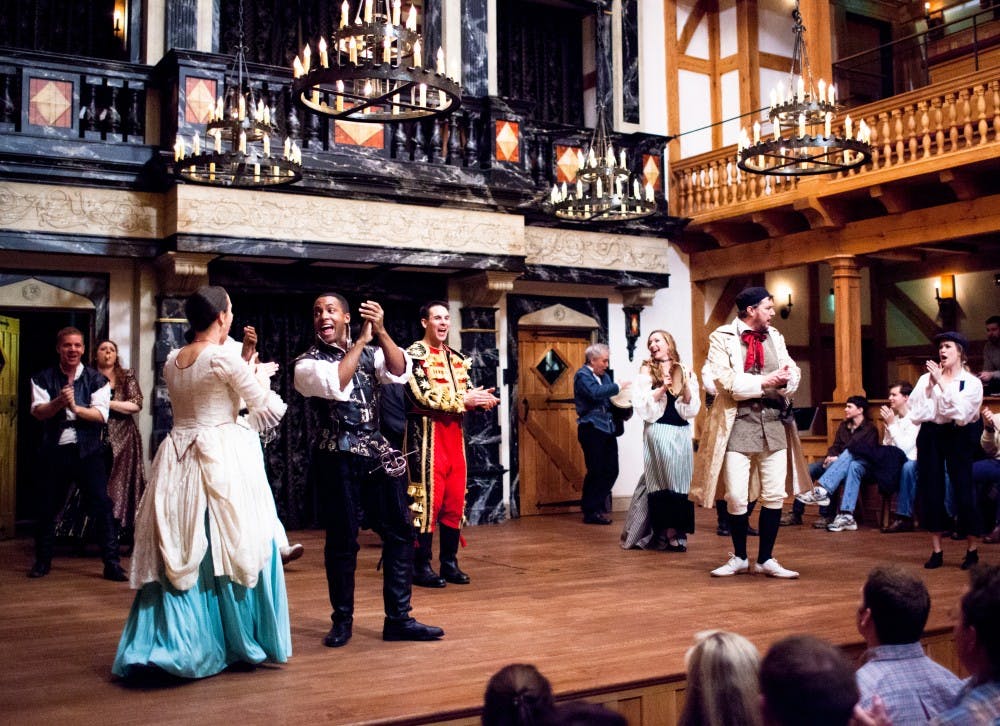Wit, not action, dictates the plot of Aphra Behn’s “The Rover,” a Restoration comedy performed at the American Shakespeare Center in Staunton, Virginia during the Actors’ Renaissance Season, which will last until April 5.
Self-directed by the actors, the play particularly succeeds in directing audience focus. Sets are extremely sparse with masks, beds and a few sheets as the only notable props. This allows the actors to stand out individually rather than become swallowed up in the series of confused, cloaked encounters throughout the play.
Lauren Ballard is well-cast as Hellena, a witty and wily woman seeking to outrun her fate as a nun. Ballard’s small and unintimidating stature makes her ability to slay everyone in the play — especially the hulking Willmore — incredibly satisfying. John Harrell plays the lusty Willmore with keen balance. His bumbling demeanor creates a walking, mocking dichotomy — one of the most humorous and most inhumane individuals in the play.
Belvile, played by Nathan C. Crocker, is perhaps the play’s stiffest character. He meets any affronts to his honor (when he recognizes them) with staunch indignation and threats of violence. He does not easily succumb to the haphazard debauchery his friends and some of the women of the play commit, thereby soundly contextualizing the play. He and his fellow Englishmen are, after all, outsiders who must be fit into the predominantly Spanish society in order to achieve “The Rover’s” necessary comic resolution. While the play revolves around personal love affairs, Belvile also soundly provides the looming threat of cultural conflict.
Costumes range from traditional to outlandish. Chris Johnston, who plays female characters Lucetta and Moretta, couples cross-dressing and a half-saucy, half-scary demeanor to make for a wench whom none but poor Blunt could believe. But it was the rustic Englishman himself, played by Patrick Midgley, who took the cake. After being tricked and cheated out of his possessions by Lucetta, Midgley spends most of the rest of the play in a simple tanktop and pair of boxers. This grossly anachronistic garb paired with Midgley’s excellent enunciations of extravagant swears like “‘sheartlikins” make Blunt the light-hearted complement to Willmore’s rapacity.
The attire of Don Antonio and his servant is a bit perplexing. Their red-yellow clash resembles clothing generally worn by a fool or jester in Shakespeare’s plays. However, the Don, played by Michael Amendola, is not particularly funny. He is ostensibly the villain of the play, if for no reason other than he is one of the only characters excluded from the traditional marriage that concludes comedies. Perhaps the outlandish garb paints him as a fool in the lens of comedy, a force which seems to be the true judge in the absence of morality.
The ASC’s production of “The Rover” emphasizes the value of actor talent over the often distracting and superfluous fluff of props or special effects. In doing so, the ASC remains true to its mission of portraying Renaissance theater, hopefully inspiring future generations to take a more actor-centric approach to plays.







